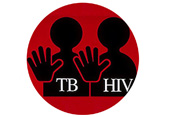Incidence of Active Tuberculosis Among Human Immunodeficiency Virus (HIV)-Positive Patients and Evaluation of Their Responses to Usual Anti-Tuberculosis Medications in Shiraz, South West of Iran
DOI:
https://doi.org/10.31661/gmj.v4i2.260Keywords:
Tuberculosis, Drug resistance, Human immunodeficiency virus (HIV), incidence, IranAbstract
Background: Human Immunodeficiency Virus (HIV) makes infected cases prone to opportunistic infections like Tuberculosis (TB) due to impaired immunity of the body, especially Multi Drug Resistant (MDR) ones which are a major concern. With HIV outbreak starting late in the 20th century, the international health community is observing a huge rise in the incidence of this complex disease. Herein, we estimated the incidence of TB among HIV-positive individuals and their responses to anti-tuberculosis medications in Shiraz, Southwest of Iran. Materials and Methods: 840 HIV-positive patients were included in this cross-sectional study. During the first examination CD4+ count and PPD test was obtained, patients were checked for other symptoms too. Patients, if diagnosed with TB, received proper medication. If therapy failed, second-line therapy was prescribed for them. Type of resistance was studied and recorded. Patients continued their routine anti-viral therapy during the study. Results: Of 840 participants, 29 were diagnosed with Active TB (3.4%), 76% of them were diagnosed with PCR and culture and other with acid fast. Males were the majority of TB positives (82.8%). Most patients suffering from TB had CD4+ count lower than 200 (55.1%); 17.2% of the cases were MDR-TB. Conclusion: Low CD4+ count makes the patient vulnerable to TB. It is necessary to maintain patient’s immunity in order to treat and prevent tuberculosis; so, anti-viral therapies still play important roles in preventing TB in HIV-positive patients.[GMJ.2015;4(2):115-20]








